When it comes to online learning, there are so many platforms out there today. But two names stand out in very different ways: Udemy and Mindvalley.
At first glance, both look like online learning platforms. But if you dig deeper, you’ll realize they are built on completely different philosophies. Udemy focuses on practical, skill-based courses taught by almost anyone. Mindvalley, on the other hand, positions itself as a premium lifestyle transformation platform, where personal growth, health, spirituality, and productivity take center stage.
If you’re someone who is curious about which platform suits you best—or whether you should invest your time and money into Udemy or Mindvalley—this in-depth comparison will clear up the confusion. We’ll break down everything: course content, teaching quality, pricing, user experience, community, and real value for money.
By the end, you’ll know exactly which platform is right for you.
The Big Picture: What Makes Udemy and Mindvalley Different?
Before we get into the nitty-gritty, let’s zoom out.
- Udemy is like an online marketplace for courses. Think of it as Amazon, but instead of buying books or gadgets, you buy online video lessons. Anyone can become an instructor, upload a course, and start selling. You’ll find everything from “How to cook Italian pasta” to “Machine Learning with Python” to “Photography for beginners.” It’s practical, broad, and affordable.
- Mindvalley, on the other hand, isn’t just about learning new skills—it’s about upgrading your life. They call their courses “Quests.” These aren’t random lessons; they’re structured transformational programs. Topics include meditation, health, productivity, spiritual growth, parenting, even relationships. The teachers are well-known authors, speakers, and leaders in their fields.
So in short: Udemy is about skills. Mindvalley is about personal growth.
Udemy: A Deep Dive
Let’s start with Udemy, because it’s one of the biggest players in the online learning space.
What is Udemy?
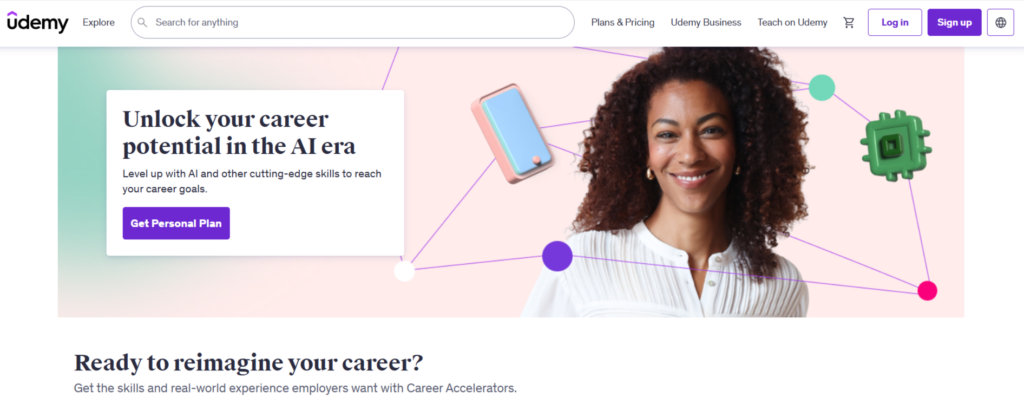
Udemy is a global platform that allows instructors to create and sell courses online. As of today, it has over 200,000 courses and more than 60 million students. It’s accessible worldwide, with a wide range of topics.
Strengths of Udemy
- Huge Variety of Courses
If you want to learn coding, marketing, design, cooking, languages, business strategy—basically anything—you’ll probably find a course on Udemy. - Affordable Pricing
Udemy often runs massive discounts. A $199 course can suddenly be available for $12.99. This makes it one of the cheapest ways to get started in any skill. - Learn at Your Own Pace
Courses are pre-recorded, so you can start and stop anytime. Perfect for people with unpredictable schedules. - Lifetime Access
Once you buy a course, it’s yours forever. You can revisit the content anytime, even years later. - Instructor Diversity
Because anyone can create a course, you get access to teachers from around the world. Some are top industry professionals.
Weaknesses of Udemy
- Quality Control Issues
Since almost anyone can upload a course, the quality can be hit or miss. Some courses are amazing, while others feel rushed or poorly made. - Too Many Options = Overwhelm
Having thousands of courses can actually make it harder to choose. Without guidance, you may waste money on a course that isn’t great. - No Community Engagement
Most Udemy courses are solo journeys. There’s no strong community or live interaction. - Shallow in Some Areas
Some courses give surface-level knowledge rather than deep transformation.
Who Should Use Udemy?
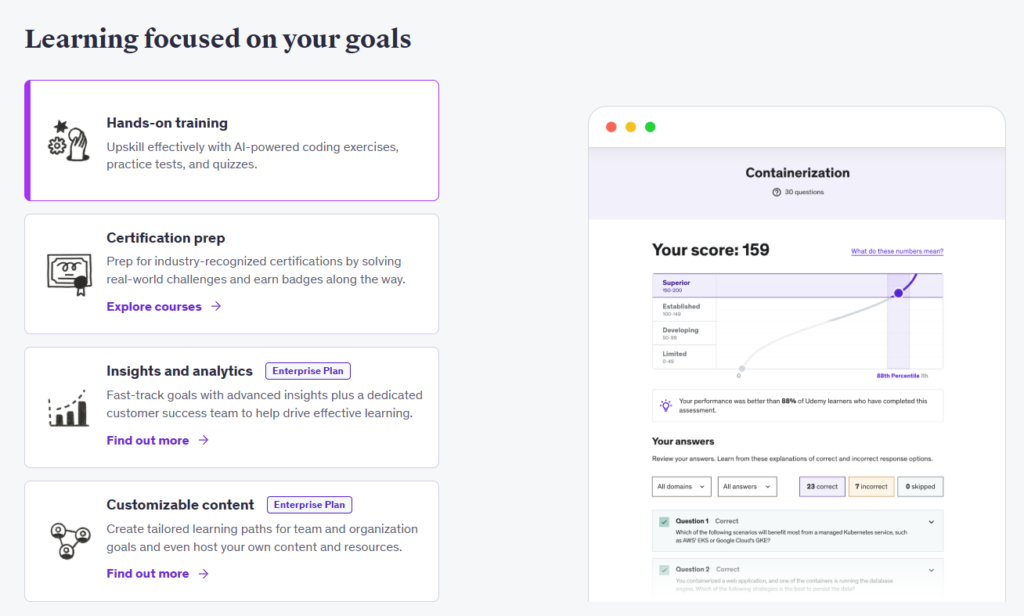
Udemy is perfect for:
- Students who want affordable skills training.
- Professionals who need specific skills (e.g., Excel, coding, marketing).
- Hobbyists exploring new passions like painting, photography, or music.
- Anyone who prefers self-paced, skill-based learning without much community involvement.
Mindvalley: A Deep Dive
Now let’s look at Mindvalley, which is very different.
What is Mindvalley?
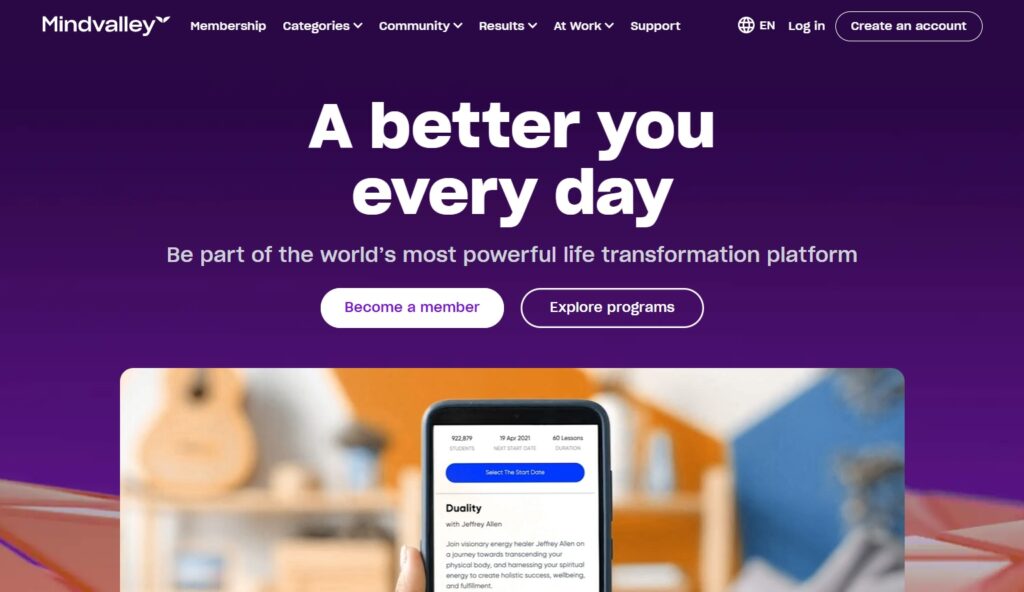
Mindvalley brands itself as a personal transformation platform rather than just an online learning site. Instead of courses, they have “Quests.” These are structured, guided programs designed to improve specific areas of your life.
Some of their most popular quests include:
- Superbrain (by Jim Kwik – memory and learning)
- Lifebook (self-discovery and life planning)
- Wildfit (healthy eating and lifestyle)
- The Silva Ultramind System (intuition and meditation)
Strengths of Mindvalley
- High-Quality Teachers
Instructors are usually bestselling authors, respected coaches, or thought leaders. Think Vishen Lakhiani, Jim Kwik, Marisa Peer, etc. - Transformational Approach
Mindvalley doesn’t just teach—it aims to change your habits, mindset, and lifestyle. Programs are immersive. - Structured Learning (Quests)
Unlike Udemy’s random lecture format, Mindvalley Quests are broken into daily lessons (10–20 minutes each) over 3–6 weeks. This builds consistency. - Community Support
Mindvalley places huge emphasis on community. Each Quest has discussion groups, and there are global meetups/events. - Polished Production Quality
The videos are professionally shot, with excellent sound, visuals, and structure. - Mobile-Friendly
The Mindvalley app makes it easy to follow Quests on the go.
Weaknesses of Mindvalley
- Expensive
A yearly subscription can cost hundreds of dollars. This is a big investment compared to Udemy’s $10–20 courses. - Niche Focus
Mindvalley is not for learning coding, business, or technical skills. It’s more about inner growth. - Time Commitment
Quests require daily commitment. If you’re not consistent, you won’t get the full benefit. - Not Academic
If you want certificates that employers recognize, Mindvalley won’t give you much value.
Who Should Use Mindvalley?
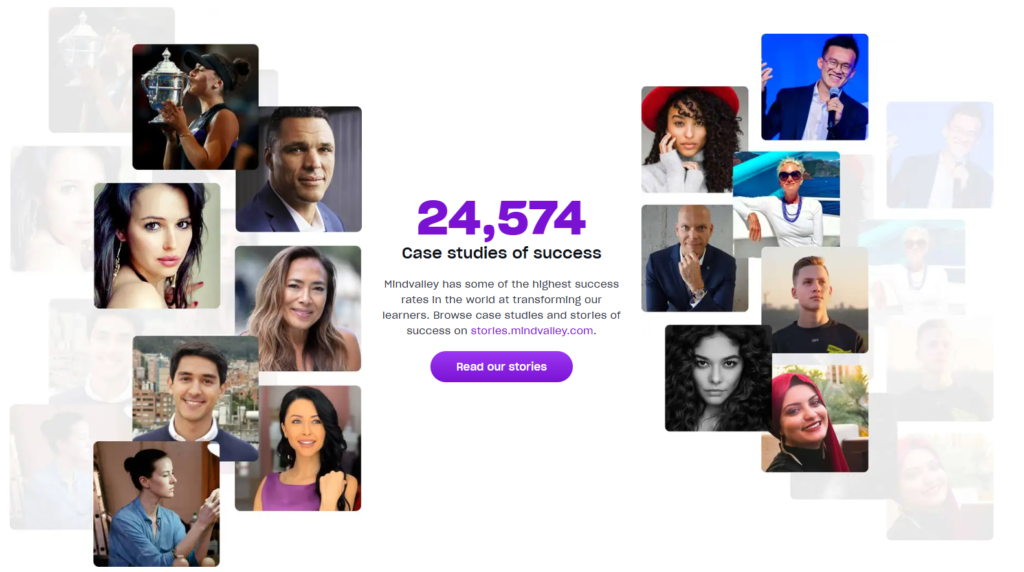
Mindvalley is perfect for:
- People seeking personal growth rather than professional skills.
- Anyone struggling with productivity, stress, or unhealthy habits.
- Spiritual seekers or people interested in mindfulness, meditation, or holistic living.
- Professionals who want to upgrade not just their work skills, but their life skills.
Udemy vs Mindvalley: Side-by-Side Comparison
| Feature | Udemy | Mindvalley |
|---|---|---|
| Main Focus | Practical skills & hobbies | Personal growth & transformation |
| Course Format | Pre-recorded, self-paced | Guided Quests (daily lessons) |
| Instructors | Anyone (varied quality) | Experts, authors, thought leaders |
| Price | $10–$200 per course (often $12) | Subscription: $299–$499 yearly |
| Lifetime Access | Yes | No (access tied to subscription) |
| Community | Minimal | Strong global community |
| Best For | Students, professionals, hobbyists | Self-improvement seekers, lifestyle learners |
| Certificate | Yes, but not accredited | Not career-focused |
Pricing Breakdown
Udemy Pricing
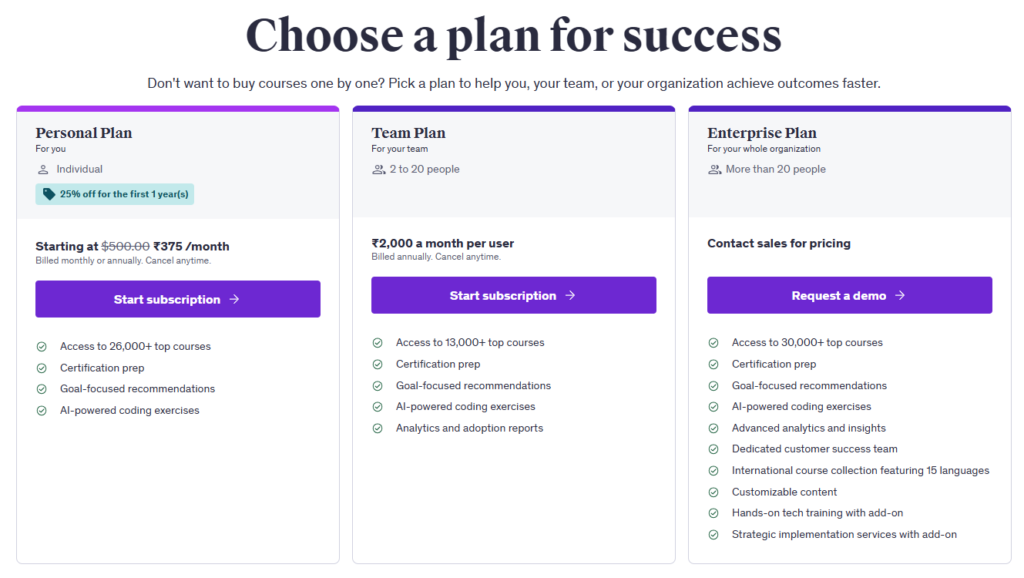
- Courses range from $10–$200.
- Frequent discounts bring most courses down to $10–20.
- One-time payment = lifetime access.
Mindvalley Pricing
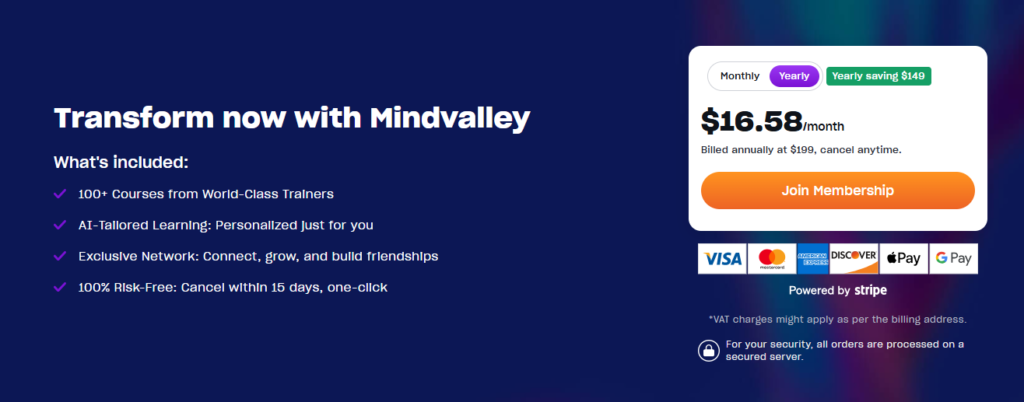
- Monthly subscription: around $99.
- Annual subscription: around $299–$499.
- Sometimes offers lifetime access bundles for thousands of dollars.
So if you’re on a tight budget, Udemy is the clear winner. But if you see value in transformation and community, Mindvalley might justify the higher price.
Learning Experience: What It Feels Like
Udemy Experience
You buy a course → You watch pre-recorded videos → You practice exercises (sometimes) → You finish and maybe get a certificate.
The process is very much like watching a YouTube playlist, but with more structure.
Mindvalley Experience
You enroll in a Quest → Each day you unlock a short lesson → You apply exercises in real life → You share your journey with a community → Over weeks, you experience gradual change.
It feels more immersive, like being part of a movement rather than just consuming content.
Community & Support
- Udemy: Very little. Some courses have Q&A sections, but engagement is minimal.
- Mindvalley: Strong emphasis on peer support. They have forums, WhatsApp groups, and live events where learners interact.
If community matters to you, Mindvalley wins.
Certificates & Career Value
- Udemy: Provides certificates of completion, but they’re not formally accredited. Still, they can look good on your LinkedIn or resume for certain technical skills.
- Mindvalley: No career-recognized certificates. The value lies in personal transformation, not employability.
So if your goal is career advancement, Udemy makes more sense.
Real Value for Money
- Udemy is great if you want affordable, quick, practical skills.
- Mindvalley is great if you’re ready to invest in deep, life-changing learning.
Both offer value—but in completely different ways.
Final Verdict: Udemy or Mindvalley?
The answer depends entirely on your goals:
- Choose Udemy if you want:
- Budget-friendly skill learning.
- Flexibility to learn anything, anytime.
- Courses for career growth or hobbies.
- Choose Mindvalley if you want:
- Life transformation.
- Consistency and structured daily lessons.
- Access to top teachers and a supportive community.
- To invest in personal growth rather than professional skills.
Closing Thoughts
Udemy and Mindvalley aren’t really competitors. They serve different needs. Udemy is like a massive supermarket—you’ll find everything, but quality varies. Mindvalley is more like a premium wellness retreat—it’s selective, structured, and deeply transformative.
If you see learning as a way to boost your career, Udemy is your friend. If you see learning as a way to boost your life, Mindvalley is worth the investment.
The best part? You don’t have to choose one forever. Many learners actually use both: Udemy for technical skills, and Mindvalley for personal growth. That way, you get the best of both worlds.
